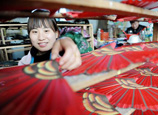
E Yongjian, a researcher with the Bank of Communications, said, "The foreign exchange purchase for this year will see a significant increase over last year, though there are still uncertainties."
He said the rising foreign exchange purchase has ruled out the possibility for easing measures, such as bank reserve ratio rate cuts, but an increase is unlikely either because of the pressure of fewer deposits faced by banks.
The interest rate will also remain unchanged to guard against further surge in capital inflow, he added.
Peng Wensheng, chief economist at China International Capital Corp, said, "The monetary policies will be set to neutral."
To mop up excess liquidity from the rising foreign purchase, the central bank has been draining liquidity via open market operations.
This week, 76 billion yuan has been removed from the money markets through 28-day repos in the bank's regular open market operations.
Taking into consideration the 59 billion yuan in central bank repos and bills maturing, the central bank actually withdrew 17 billion yuan from the markets, a softer move from a week earlier, which analysts read as the bank's attempt to keep moderate liquidity to support the tepid economic recovery in the context of lower-than-expected inflation data.
China's consumer price index rose 2.1 percent year-on-year in March, down from a 10-month high of 3.2 percent in February, and the producer price index, which measures wholesale inflation, fell for the 13th consecutive month.
However, the mild inflation and relatively gentle recovery suggest little possibility of monetary tightening, while ample liquidity in the markets makes policy easing equally unlikely, according to analysts.
The Chinese economy saw its slowest growth in 13 years in 2012, increasing 7.8 percent, but growth began to show signs of recovery in the fourth quarter of last year.
China is due to release key economic data for the first quarter next week.

















 Homemade submarine, deep pockets | Also See: Incredible inventions by Chinese
Homemade submarine, deep pockets | Also See: Incredible inventions by Chinese


![]()
